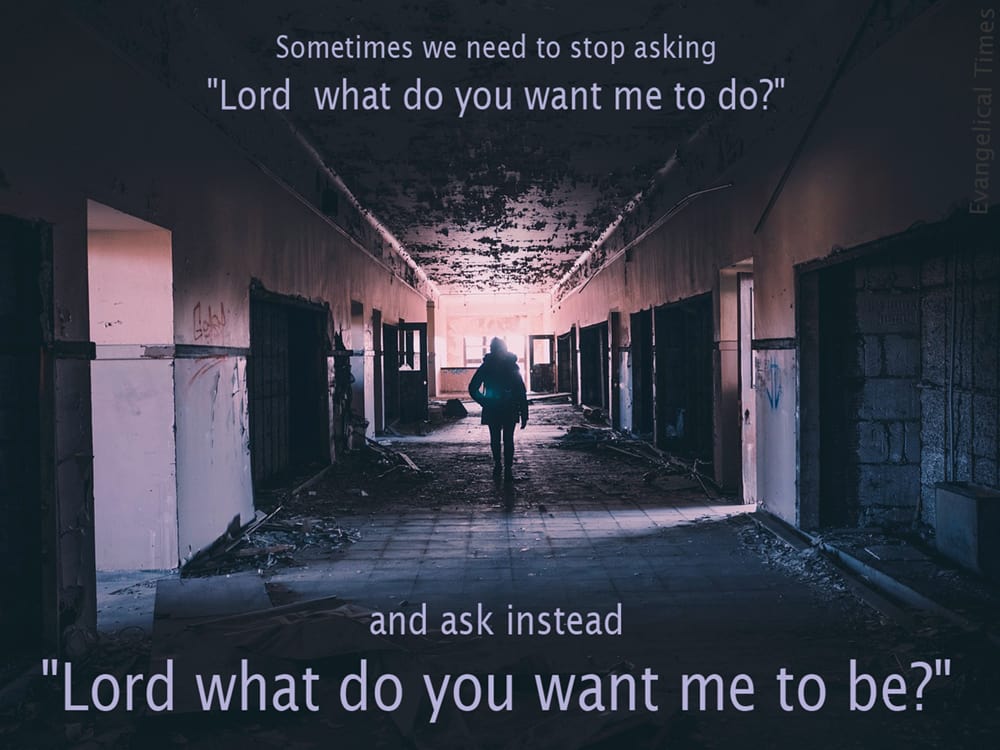
She was fifty-something, had teenage children and her husband had just left his pastorate of 20 years. The family was in crisis: no job; no money; no suitable home; children confused and bewildered; and the marriage under strain.
She said, ‘You know, as a pastor’s wife, life was always busy, with church work, raising children, giving hospitality, trying to be always available, etc. Sometimes it was hard to find the time to read the Scriptures and pray; now it is hard to find time to do anything else!’
I could not enter fully into what she was saying, but never forgot her words. When my husband Ray died, I began to understand what she meant.
Grief
Most of the time I had no real sense of the Lord’s presence with me, and yet there was a new urgency to read the Word, to find what the Lord was saying to me, and to pray. Prayer was not long or structured, but it was almost constant. It seemed every thought, every occurrence, every conversation — helpful or not — turned to prayer.
Ray’s death was sudden and without any warning. He had never known serious illness and yet in an instant went from being fit, healthy and active to being in the presence of the Lord.
The early weeks and months afterwards were filled with intense grief, and those who have passed this way will be familiar with all that this brings. Rather than describe those details here, I want to share some of the things the Lord has been teaching me since that time.
A particularly helpful book I read after about three months was Christians grieve too, by Donald Howard (Banner of Truth), in which he describes his own journey through grief after his wife died.
In the preface, he says, ‘We were prepared for death, but I was ill prepared for grief’. Those words truly resonated with me. Grief at this level was something I had not known. Outwardly, I think I gave the impression of being fine and able to function fairly normally, but really I was in turmoil.
Sometimes I was calm, but at other times wondered if I had early dementia! Some days I had unusual levels of energy and other days were bleak. But always my mind was full of questions to which there seemed to be no answer.
About a month after Ray’s death, I read an article by Joel Beeke entitled ‘Living through affliction Christianly’ (Evangelical magazine, June-July 2009). He posed the question, ‘How can I grow in grace while — yes while — suffering affliction?’
He urged the reader to consider Christ in seven ways: his affliction, power, presence, perseverance, prayers, goals and end — eternal glory. I knew that the article spoke truth, but it was hard to see how growth in grace was possible in the midst of the confusion, tears and the futility of life, as it now seemed to have become.
More recently, on the same subject I read, ‘Affliction … will always show you what you love — either the God of all comfort or the comfort that can be your god’ (Pearls of great price, Joni Eareckson Tada; Zondervan, 2006). Three years later I am only just beginning to learn what Beeke means by ‘sanctified affliction’.
Moving on
After a while, I found a strange reluctance to move out of the intense emotion of the early months. I felt guilty if I was amused or enjoying something, as if to grieve less would be a betrayal. There was a cocoon of grief wrapped around me, giving me a feeling of security which was at odds with the desire and need to return to ‘normal’.
Why was I so unwilling to move on? Did I not want the pain and tears to end? Of course I did in some ways, but moving on meant embarking on learning to be a person on my own, and I found the prospect both scary and daunting.
Grief is not just about the huge gap left by the person who has gone, but it is about a whole new way of life without that person.
I am not thinking here of the practical things — mowing the lawn, checking the engine oil, catering for one, catching the spiders, but the more fundamental things — a new structure to everyday life; being accountable to no one; finding purpose in living; questions of identity, and so much more.
Allowances are made for the grieving widow: absence from meetings is understood; talkativeness or silence are accepted; unusual responses to events seen as normal. Though it was lovely that everyone was so understanding and kind, yet at the same time I needed to be seen and treated as normal. How was I to learn to be a person on my own?
My mind and my prayers were full of questions, though I don’t think I ever asked the question ‘Why?’ or ‘Why me?’
I did not understand what the Lord was doing, but I never doubted that he was in control and knew that Ray’s death was not a surprise to the Lord.
Some may be shocked that the knowledge that he was with his Lord did not give me much comfort at first. After all, I knew he would be with the Lord one day, but for now I wanted him still here with me!
It was only when those selfish thoughts left me that I was able to rejoice that Ray was free from the limitations of fallen human nature and from all that had caused him pain, disappointment and sadness in this life. Those things were gone and he could at last worship and adore without any hindrance.

Devotion
I will explain a little of how the Lord spoke to me in the midst of those questions. Having always supported one another in whatever the Lord gave Ray and me to do, I could not clearly see how I could serve him now. So one of the questions I repeatedly asked was, ‘Lord, what do you want me to do?’
I phrased it many different ways, but it seemed there was no answer. Seven months into this journey, I attended an induction service. The ministry centred on Mark 1:35-39, where before continuing his ministry, Jesus found a quiet place to pray to his heavenly Father.
Clearly Jesus’ priority was his devotional life with his Father. The preacher stressed that the minister, and indeed every believer seeking to serve his Lord, should do no less. Several times the preacher repeated the words ‘there can be no service without devotion’.
This frequent repetition was a kindness to me from the Lord, as my powers of recall were still poor (grief is exhausting and has a tendency to scramble the brain!). Driving home — a journey of an hour or so — I was turning those words over and realised very clearly that the reason there was no answer was that, all this time, I had been asking the wrong question.
I should not have been asking ‘What does the Lord want me to do?’, but ‘What does he want me to be!’
We are told clearly and simply that his will for us is our sanctification, and I saw that if I focussed more on what the Lord would have me be, then whatever he may have for me to do would be there for me to do.
I saw that the answer to my question lay in the quality of my daily walk with him, rather than in the details of anything I was to be doing.
Calm
Graciously the Lord repeated the lesson in different ways. There was a day when I was feeling overwhelmed by the tasks I faced and didn’t know how to deal with all that the day would bring.
I was still at the stage when it was hard to focus on one thing, and tended to start lots of tasks and complete none — lots of frenetic energy spent to no purpose!
I was reading a book of short but helpful daily readings, and came across the simple statement that God’s agenda for me that day was to become more Christ-like.
That cut through all my fretting. Everything fell into place and I was able to face the day calmly. Those words are still on a ‘post-it’ on my fridge door! It was all a question of priorities.
To be concluded
Gladys Nash



